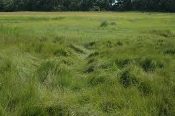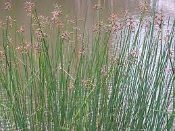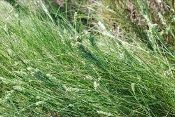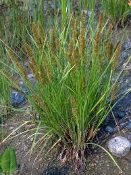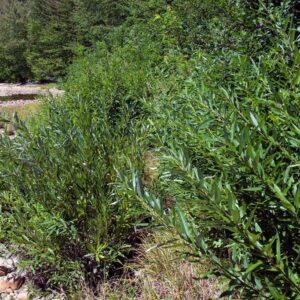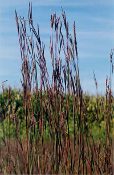$1.80
Sporobolus pumilus , (Spartina patens), Meadow Hay, Salt Meadow Hay, Native Grasses, Perennial Grass Plugs, Native Wetland Plant
Wholesale pricing is based on quantity. 50 plants (plugs) per tray with a required minimum purchase of 50 plants for this species.
50 or more $1.80 each
300 or more $1.70 each
1000 or more $1.60 each
2000 or more Call
For Shipping, Planting and additional FAQ’s please see “About our organically grown native plug trays “.
See all available Native Perennial Grasses & Organically Grown Plug Trays
Order Minimum
There is a minimum order total of $150.00.
before tax (VA residents only) and shipping.
There are NO EXCEPTIONS.
Description
Sporobolus pumilus , (Spartina patens), Meadow Hay, Salt Meadow Hay, Native Grasses, Perennial Grass Plugs, Native Wetland Plant
Aquatic animal habitat support:
High Wildlife Value:
Clay Soil- High clay content, fine texture:
Erosion Control:
FACW- Usually occur in wetlands, but may occur in non-wetlands:
Flood Tolerant:
Grass/ Sedge/ Rush:
Herbaceous Emergent:
Loamy Soil- mostly silt, sand, some clay:
Moist Soil:
Native to Coastal Regions:
OBL- Almost always occur in wetlands:
Occasionally wet soil (non tidal):
Perennial:
Saline tolerant: yes
Salt Tolerant: yes
Sandy soil, coarse texture:
Small Mammals:
Songbirds:
Threatened / Endangered:
Waterfowl:
Wet soil (Tidal): yes
Full Sun:
Botanic Name (s): Spartina patens
Common Name(s): Meadow hay, salt meadow hay, salt meadow cordgrass
Mature height :1-3ft
Bloom Time:July-September
Sun Exposure: Full Sun
Soil moisture: Wet
Soil Ph:5.3-7.5
Soil Type: Clay Soil- High clay content, fine texture
Loamy Soil- mostly silt, sand, some clay
Sandy soil, coarse texture
Salinity: 0-35ppt
Native Habitat: coastal salt and brackish tidal marshes, irregularly flooded marsh at or above mean high tide
Notes: Forms large mats, excellent for shore erosion control, stabilization
Flood Tolerant Erosion Control
Average Wildlife Value: SongbirdsGame Birds Small Mammals Waterfowl
OBL- Almost always occur in wetlands
Native to Coastal Regions
Threatened / Endangered:Oregon, Washington
Native Perennial Grass / Sedge / Rush
Native Herbaceous Emergent
Aquatic animal habitat support
Spartina grass plays an important role in the estuary food web. The grass provides food directly and indirectly to many animals. Insects such as grasshoppers eat the grass, and spiders prey on insects eating the grass. Algae and detritus floating in the water stick to the grass stems.
Sporobolus pumilus , (Spartina patens), Meadow Hay, Salt Meadow Hay, Native Grasses, Perennial Grass Plugs, Native Wetland Plant
See all available native Grasses.
You may also like…
-

Schoenoplectus tabernaemontani, Softstem bulrush, Wholesale Native Grasses, Perennial Grass Plugs, CUT BACK HARD
$7.50 Add to cart -

Distichlis spicata, Saltgrass, Native Grasses, Perennial Grass Plugs, Native Wetland Grass, ready to ship 5-26 or later, CUT BACK HARD
$7.50 Add to cart -

Carex vulpinoidea Fox sedge, Native Grasses, Perennial Grass Plugs, CUT BACK HARD
$7.50 Add to cart
